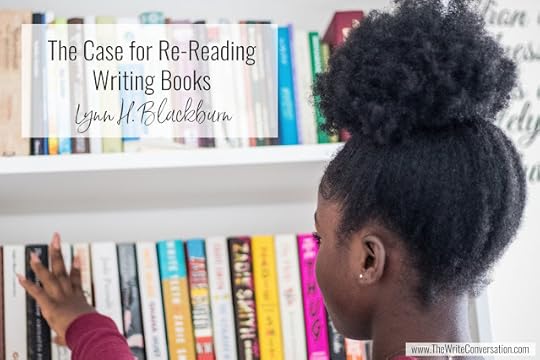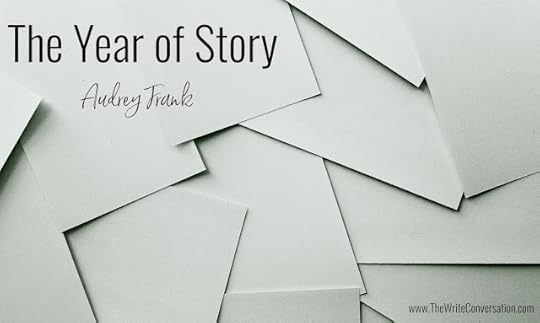Edie Melson's Blog, page 139
January 10, 2022
A Writer's Responsibility for the Words We Pen

by Cindy K. Sproles @CindyDevoted
I'm working on fulfilling a contract for a devotional. It's not your basic devotional, but it includes tidbits of history, possible new perspectives, and reasons about the whys and hows the reader may not have considered. I've looked for different types of scripture. Some obscure because it forces me to study, others simple. I've found questions and perspectives I never imagined.
Because this is digging a tiny bit deeper, I have secured the Biblical oversight of a Professor of Ministry and Preaching at a Bible College. I wanted to be sure I did not misrepresent God's word in any way. This man has been so kind to follow devotion by devotion, add insights, approve the doctrinal thoughts, and head-scratch some with me. I have also enlisted the wise counsel of our minister at church, who has, a couple of times, said, "Cindy, no one has ever asked me that question before. It's a good thought. I like where you are going."
I tell you this, not to brag or make myself look smart, but because this type of attention is what every writer should do before putting the first word on the page. It may not be that you need Biblical direction or doctrinal approval, but it may mean before your comments ever leave your computer, you make sure you've 1) written it contextually correct 2) it's written in love and not vengeance or anger, and 3) you have prayed fully over it.We live in a world that seeks ways to discredit the believer and, worse yet, the God we believe in so strongly. Now, more than ever, our words carry a message of power. My family recently enjoyed the newest Spiderman movie. The young teen was reminded of a significant fact during the movie. "With great power comes great responsibility." I'm not sure we could find words that are any truer. As writers, we wield a sword that can make or break a reader. It is a huge responsibility.
Our writing responsibility doesn't end with the devotion, Bible story, non-fiction, or fiction story we may write. It carries fully into our daily lives on social media as well. Look at the landslide that happened on FaceBook with false news. Lies fueled anger, hate, and frustration across the country. The sad thing was even well-respected Christians fell into the mania. What message do you think that sent to non-believers? Some strong in the faith lashed out with horrible words, and all I could think was, would they say those things in front of Jesus?
Some of those commen for the Words We Pents solidified the beliefs of the unchurched. "Why would I want to be a Christian if that is how they behave?" Writing good words during upheaval is difficult, but as a servant of the Kingdom, your responsibility is to the truth of Christ. Your approach is what will make the difference. I'm sure Jesus grew frustrated and sometimes angry, but His teachings were gentle. Short of His anger in the temple with the money changers, we only find the compassion Jesus taught by. In His gentleness, Jesus changed lives. In His plight to remain in truth, He set an example.
I once heard Steven James teach in a class that the way to win people to truth is not by standing on a soapbox wagging your finger in their face. It's not telling them how wrong they are or blistering their beliefs, but it is done by writing from the consequence of the action. I had to think about it for it to truly sink in. That is how Jesus taught – from the result of the wrong action. This is why many other authors and I continually say, "Learn the craft." We must know how to pen good solid writing from a compassionate view to make a relational connection to the world of non-believers.
When your words land on the page, you are taking on a position most dear to God. You are carrying HIS message to the world. A world He so loved that He gave His only son. It's precious to Him. He's protective of it. Caring of it. Loving of it. The masses are reading your words via social media, blogs, and web pages. So, what is your priority for being sure the words you send out to the world are God-pleasing?
How do we do this? 1) Never hit send on the first draft, no matter how well crafted. The commas and hyphens may be right, but is the tone of what you say suitable? 2) Are your words penned out of anger, frustration, or hurt or have you gleaned the emotion and phrased things in a godly manner. 3) Do you consider the responsibility to the Father before you hit enter? Every writer must check and recheck all these things before sending out their words. Responsibility is more than being grammatically correct. It's being Christ-like. I had written blog posts before and sent them to a trusted friend with the question- "Too much?" Her response is the gage that tells me I have overstepped my bounds of responsibility, and I wait a day, then rewrite. Obviously, my heart wasn't in the right spot. Or if it was, it got a bit testy.
Jesus commissioned us to go into the world and make disciples. Teach. Spread the word of this loving God and all that He was, is and shall be. Take it seriously whether you are writing a devotion, a study, or fiction. My efforts to seek counsel on the devotional I am writing is not for me. I already know I'm not the wisest person in the world, and I fall far short of what and who God wants me to be, but I do this to be sure that as my words go out into the world, they represent a God of love, discipline, peace, and hope.
As you write, remember, "With great power comes great responsibility." Pen good words.
TWEETABLEA Writer's Responsibility for the Words We Pen, encouragement & insight from @CindyDevoted on @EdieMelson (Click to Tweet)
 Cindy K. Sproles is an author, speaker, and conference teacher. She is the cofounder of Christian Devotions Ministries and the executive editor for www.christiandevotions.us and www.inspireafire.com. Cindy is the lead managing editor for SonRise Devotionals and also Straight Street Books, both imprints of LPC/Iron Stream Media Publications. She is a mentor with Write Right and the director of the Asheville Christian Writers Conference held each February at the Billy Graham Training Center, the Cove, Asheville, NC. Cindy is a best selling, award winning novelist. Visit Cindy at www.cindysproles.com.
Cindy K. Sproles is an author, speaker, and conference teacher. She is the cofounder of Christian Devotions Ministries and the executive editor for www.christiandevotions.us and www.inspireafire.com. Cindy is the lead managing editor for SonRise Devotionals and also Straight Street Books, both imprints of LPC/Iron Stream Media Publications. She is a mentor with Write Right and the director of the Asheville Christian Writers Conference held each February at the Billy Graham Training Center, the Cove, Asheville, NC. Cindy is a best selling, award winning novelist. Visit Cindy at www.cindysproles.com.Featured Image: Photo by Marcus Urbenz on Unsplash
Published on January 10, 2022 22:00
January 9, 2022
How to Write a Query Letter

by Edie Melson @EdieMelson
All writers should develop the skill of writing a compelling query letter. A query is basically a written pitch—these are usually sent through email, but may occasionally be included in a proposal.
How to Query
This simple concept has caused more anguish for writers than anything else around. But in the freelance world, it’s a necessary evil. Your queries may find their way to the editor's desk in hard copy format or email, but the principles are the same.
It may seem unfair that your writing ability is judged on a single letter or email, but that is the hard truth in this industry. And, having sat behind the editor’s desk, I now understand why. Invariably a poorly written query previews major problems in the writer’s submitted work. I have rarely found this to be the exception. But rather the rule.
The query letter serves two equally important purposes: Get the assignment.Showcase your writing ability.The Parts of the Query Salutation. Make certain you get a name – not Dear Editor. If you can’t find the name listed anywhere, call the office, just don’t let them connect you to the editor. Also, check the spelling and the GENDER. You don’t want to use the wrong pronoun. Here's a post I wrote about the for more details.First Paragraph. You should start with your hook. Don’t use anything corny like, “Don’t miss out on this opportunity.” Instead, it should be a legitimate hook. You also need to reference what part of the magazine/website you’re pitching. Don’t say something like, “This idea would work well anywhere in your magazine.” It's a neon sign that screams amateur. Also give the approximate word count.Second Paragraph. This is where you pitch your idea. It’s good to include specifics—even bullet points—here.Third Paragraph. This is your bio, your credentials for writing this article. Be honest, but don’t over inflate your merits. As editors, we've seen it all and can spot a fake from a mile away. Also don’t criticize or run down yourself by saying something like, “I don’t have any writing credits, but I’m willing to learn.”NOTE: If you don't have any writing credits, include experience you have that would make you a good fit for writing this article. Are you pitching an article about how to get kids ready for to go back to school? It would be important for the editor to know you have six kids in school or that you're a teacher.
Here are the basics you need to achieve these goals: Keep it short. Your query letter/email should NOT exceed one page…ever! If you're not sure what one page would look like in an email, write it in a word document first. Then copy and paste it into the email.Use a standard font. Times New Roman 12 point font.Use standard formatting. For an e-query use block formatting (no paragraph indentions, single spaced, double space between paragraphs). For hard copy use traditional letter formatting (indented paragraphs, single spacing, no extra lines between paragraphs). Here are some red flags to avoid:Too long.Strange fonts.Improper or mixed formatting. Also, it’s vitally important not to waste time when sending a query. I don’t mean hurry to send it off, but rather, get to the point. Don’t waste the editor’s time with things that are understood, or have no bearing on the article you’re pitching.
Here are a couple of examples of time wasters:Just say the word and I’ll send you the article. (I really doubt you'd be pitching something and then not agree to send it)I've spent hours researching this subject. (I would hope so) TWEETABLEHow to Write a Query Letter, tips from @EdieMelson (Click to Tweet)
 Edie Melson is a woman of faith with ink-stained fingers observing life through the lens of her camera. No matter whether she’s talking to writers, entrepreneurs, or readers, her first advice is always “Find your voice, live your story.” As an author, blogger, and speaker she’s encouraged and challenged audiences across the country and around the world. Her numerous books reflect her passion to help others develop the strength of their God-given gifts and apply them to their lives. Connect with her on her website, through Facebook, Twitter and on Instagram.
Edie Melson is a woman of faith with ink-stained fingers observing life through the lens of her camera. No matter whether she’s talking to writers, entrepreneurs, or readers, her first advice is always “Find your voice, live your story.” As an author, blogger, and speaker she’s encouraged and challenged audiences across the country and around the world. Her numerous books reflect her passion to help others develop the strength of their God-given gifts and apply them to their lives. Connect with her on her website, through Facebook, Twitter and on Instagram.
Published on January 09, 2022 22:00
January 8, 2022
Hope in the New Year

by Martin Wiles @LinesFromGod
Although a goal-oriented type of guy—I love check-off lists and passed along that trait to my daughter—I stopped making New Year resolutions a long time ago.
Since I set goals throughout the year, I wondered what the point of relegating them to one day was. And then, too, the statistics of keeping them aren’t too encouraging. Many are broken within a short period. Hours. Days. Weeks. But failing to make goals on one day doesn’t mean everything has gone well throughout the year.
Not to be pessimistic, but weak, tired, exhausted, and disgusted are adjectives that describe most previous years for any of us. Life happens. We get weak from sicknesses or diseases for which there is no cure or that seem to last too long. We grow weak and tired emotionally from working to meet financial responsibilities and still don’t have enough money to pay the bills—or buy groceries. We tire of studying for the degree, tire of writing, tire of the rejection letters, tire of editing, and tire of the late-night or early-morning hours. We get exhausted from having to care for loved ones who can’t fend for themselves, and we detest going to a job we don’t like. (Well, that sounds a little pessimistic after all.)
But Isaiah gives hope…and the key for a fresh start to a new year. “Even youths will become weak and tired, and young men will fall in exhaustion. But those who trust in the Lord will find new strength. They will soar high on wings like eagles. They will run and not grow weary. They will walk and not faint” (Isaiah 40:30-31 NLT).
Trusting in the Lord probably won’t make all—and maybe not any—of the stressors disappear. I trust Him, but the rejection letters still come. Sometimes, God takes the frustrations away… sometimes, He doesn’t.
But trusting in God gives us strength beyond ourselves—fortitude we can’t muster on our own. The new strength comes from remembering He is in control—of the devotion, the article, the manuscript. He has come through for us in the past, and He will again. Perhaps not in the way we want or imagine, but come through He will.
That trust will cause us to rise above the trials and disappointments like an eagle soaring above the obstacles that would restrict her flight. Not all our writing will be rejected—and even if it is, we shouldn’t stop.
Whatever the nature of the disappointment, God can enable us to soar when ordinarily we would crash and burn. We will run the race of life without being emotionally, physically, or spiritually exhausted. We will walk through every day, with all that it brings, without falling. Even with peace…and a smile.
God never promised an easy life, but He will give us hope for every year when we look to Him. Put your hope in God this year, not things or people.
TWEETABLEHope in the New Year, encouragement from Martin Wiles, @LinesFromGod on @EdieMelson (Click to Tweet)
 Martin Wiles is the founder of Love Lines from God (www.lovelinesfromgod.com) and serves as Managing Editor for Christian Devotions, Senior Editor for Inspire a Fire, and Proof Editor for Courier Publishing. He has authored six books and has been published in numerous publications. His most recent book, DON'T JUST LIVE...REALLY LIVE, debuted in October of 2021. He is a freelance editor, English teacher, author, and pastor.
Martin Wiles is the founder of Love Lines from God (www.lovelinesfromgod.com) and serves as Managing Editor for Christian Devotions, Senior Editor for Inspire a Fire, and Proof Editor for Courier Publishing. He has authored six books and has been published in numerous publications. His most recent book, DON'T JUST LIVE...REALLY LIVE, debuted in October of 2021. He is a freelance editor, English teacher, author, and pastor.
Published on January 08, 2022 22:00
January 7, 2022
Do Your 2022 Goals Reflect Your Values?

by Beth K. Vogt @BethVogt
My husband Rob and I went to Hawaii for the first time in December. He attended a medical conference, and I went along, well, for Hawaii. And for time with wonderful husband, too, of course.
During the five days of Rob’s conference, I had something I rarely experience: time to myself.
Rob left for his workshops each morning by 7:30. Most days, he finished by 12:30. That means I had five hours alone every day. Five days x Five hours = 25 hours to myself.
Wow.
My original intention was to write, write, write during all those glorious hours.
That’s not what happened.
The 25 hours were about giving myself time to think.
The 25 hours were about giving myself time to listen to God.
Each morning I watched one or two brief videos to jumpstart my focus for the day. Then I thought. I prayed. Thought and prayed some more.
The biggest change that occurred during my time in Hawaii?
I took the time to ask myself what my life values were. I narrowed my values down to faith, relationships, health, and identity.
And now, because it is a new year, we get to the word “goals.”
You’ve probably heard about how important it is to make SMART goals:Specific Measurable AchievableRelevantTime-BoundToward the end of the week, when I did lay down some concrete goals for the first three months of 2022, I didn’t aim for a single SMART goal. No. Instead, each goal I wrote down was based on one of my values.
During those 25 hours of uninterrupted prayer and thought, one thing became clear: As I selected goals based on my life values of faith, relationships, health, and identity, my objectives were more meaningful. I was more committed to each decision because what I’m spending my time and efforts on are linked to my core beliefs.
What about you? Consider the goals you’ve set for yourself this year. Do they reflect your life values?
TWEETABLEDo Your 2022 Goals Reflect Your Values? Insight from @BethVogt on @EdieMelson (Click to Tweet)
 Beth K. Vogt believes God’s best often waits behind the doors marked “Never.” Having authored nine contemporary romance novels and novellas, The Best We’ve Been, the final book in Beth’s Thatcher Sisters Series with Tyndale House Publishers, releasers May 2020. Other books in the women’s fiction series include Things I Never Told You, which won the 2019 AWSA Award for Contemporary Novel of the Year, and Moments We Forget. Beth is a 2016 Christy Award winner, a 2016 ACFW Carol Award winner, and a 2015 RITA® finalist. An established magazine writer and former editor of the leadership magazine for MOPS International, Beth blogs for Learn How to Write a Novel and The Write Conversation and also enjoys speaking to writers group and mentoring other writers. Visit Beth at bethvogt.com.
Beth K. Vogt believes God’s best often waits behind the doors marked “Never.” Having authored nine contemporary romance novels and novellas, The Best We’ve Been, the final book in Beth’s Thatcher Sisters Series with Tyndale House Publishers, releasers May 2020. Other books in the women’s fiction series include Things I Never Told You, which won the 2019 AWSA Award for Contemporary Novel of the Year, and Moments We Forget. Beth is a 2016 Christy Award winner, a 2016 ACFW Carol Award winner, and a 2015 RITA® finalist. An established magazine writer and former editor of the leadership magazine for MOPS International, Beth blogs for Learn How to Write a Novel and The Write Conversation and also enjoys speaking to writers group and mentoring other writers. Visit Beth at bethvogt.com.
Published on January 07, 2022 22:00
January 6, 2022
Before You Criticize a Writer

by A.C. Williams @ACW_Author
“This is the worst book I’ve ever read.”“The author obviously doesn’t know what she’s talking about.”“People keep saying this book is wonderful, and I totally disagree. It’s awful, and no good Christian should read it.”Ever seen reviews like that? I have. People have written them about my books. Nothing rips your heart out like a harsh review on a story you poured your heart and soul into.
No, we’re not talking about book reviews today, although that might be a good topic for another post. On this first Friday of 2022, I just wanted to touch on something that’s been on my heart for a while.
When did having a critical spirit become something to aspire to?
Have you noticed that more and more people have less and less positive feedback about books or movies or music? We are inundated with criticism day in and day out. Sure, some of it is deserving. I’ve read a few books this year and watched a few movies that could have used an extra edit. Or two. Or three.
But no matter how much I dislike a story, no matter how differently I might have written a story, that doesn’t give me the right to personally attack the creator. I may not enjoy what they’ve created, but I don’t know his or her heart. I don’t understand their motivation.
I’m a member of many different online communities who offer feedback and criticism of books and music and movies, and over the last year, no one has had anything positive to say. Even if they like the overall concept of a book, they only seem to focus on what they hated. And it becomes more than just literary criticism. It becomes an opportunity to say cruel things and make uninformed assumptions about the creator’s intentions and personal beliefs.
Y’all. That’s not our job. And beyond it not being our job, it’s not even in our power to know someone’s heart. That power belongs to God alone.
Obviously I’m not lobbying for the relaxation of our standards. If a movie or a song or a story goes against what is morally and biblically correct, that should be called out. And if it isn’t done well, it’s helpful to teach how it could be done better. What frightens me is the outright antagonism and rage directed at people who disagree with us.
That’s not helpful at all. It’s destructive.
My friends, can we stop being so critical all the time? Can we choose to look for the positive first rather looking for things to tear apart? Can we celebrate with people who are happy rather than pointing out all the ways they could fail?
Maybe you mean well. Maybe you’re trying to help. But let’s always remember that good discernment doesn’t always equal criticism. Sometimes harsh criticism comes from your own unresolved trauma, emotional baggage, or hurt feelings.
And let me just say, those of us in Christian communities are the worst about this.
We love to point out books that aren’t Christian enough. We love to blacklist songs that were written by people who don’t measure up to our expectations of what a Christian artist should be. We love to say hurtful things about creatives who aren’t as outspoken as we think they should be.
I’m looking in the mirror here. I have done this. I have sat back on my blessed assurance and blasted people who I felt didn’t perform well enough.
Praise God, it’s not my standards those people have to meet. Praise God, I don’t have to meet my own standards.
I think I’m just tired of conflict. I’m tired of never hearing anything good anymore, even among communities where our common ground is Jesus Christ.
Can we take a step back and acknowledge that everyone has a different calling and a different audience? That we all come from different places and have a different purpose in life? Can we try to understand that what doesn’t resonate with us might transform someone else’s life? Can we accept that it’s possible for a story to be both something we don’t like and still worthy of praise?
That’s my goal this this year. To be honest in my feedback but full of grace. To base my criticism on the standards of what works and what doesn’t within our industry rather than aiming my words at what I assume the author was trying to accomplish. To intentionally identify my own emotional struggles before I criticize someone else’s heart.
In 2022, let’s work together to build each other up. Let’s be intentional about encouragement. And if someone asks us for criticism, let’s be gentle about it.
I know we mean well. Most people do. But may we never forget how dangerous our words are.
TWEETABLEBefore You Criticize a Writer, insight from @ACW_Author on @EdieMelson (Click to Tweet)
 Award-winning author, A.C. Williams is a coffee-drinking, sushi-eating, story-telling nerd who loves cats, country living, and all things Japanese. She’d rather be barefoot, and if she isn’t, her socks won’t match. She has authored eight novels, two novellas, three devotional books, and more flash fiction than you can shake a stick at. A senior partner at the award-winning Uncommon Universes Press, she is passionate about stories and the authors who write them. Learn more about her book coaching and follow her adventures online at https://www.amycwilliams.com.
Award-winning author, A.C. Williams is a coffee-drinking, sushi-eating, story-telling nerd who loves cats, country living, and all things Japanese. She’d rather be barefoot, and if she isn’t, her socks won’t match. She has authored eight novels, two novellas, three devotional books, and more flash fiction than you can shake a stick at. A senior partner at the award-winning Uncommon Universes Press, she is passionate about stories and the authors who write them. Learn more about her book coaching and follow her adventures online at https://www.amycwilliams.com.
Published on January 06, 2022 22:00
January 5, 2022
The Case for Re-Reading Writing Books

by Lynn H. Blackburn @LynnHBlackburn
For many writers, the transition from one year to the next is a time filled with evaluation and planning. We consider what we did the year before and look to the future, sketching out our goals for everything from the number of pounds we’ll lose to the number of books we’ll read.
I tend to set my goals based on areas of weakness, not strength, which is why I rarely set a reading goal. I read a lot, so I don’t need any incentive to encourage this behavior!
I also don’t have a true TBR (to-be-read) list. I have books all over my house, and if I haven’t read them, then they count as TBR! As a mood reader, I rarely make a list of books that I need to read. I pick them up when I feel like it (and usually do absolutely nothing else until I finish them).
But this year, I did something I’ve never done before. I made a list of books that I would like to re-read. Specifically books related to writing that I have frequently cited as being some of my favorites, but haven’t read in years.
I did this for two reasons:
1. It’s been a while since I read these books. I started intentionally studying the craft of writing twelve years ago. There is no way I could possibly remember everything that is of value in these books. It’s time for a refresher.
2. I’m not the same writer I was when I first read these books. I read some of these years before I was published. I was new and soaking up everything I could get my hands on. I can’t help but wonder what insights and wisdom I’ll glean from these books now that I’m reading them from the perspective of a published author deep in the throes of deadlines and revisions.
Here are 5 I chose to re-read first. My mood reading applies here. I’ll pick up whichever one jumps out at me and read them in the order that feels most natural. But I’m excited to dive back in and see what they have to teach me.
1. On Writing by Stephen King. This one is part memoir, part writing guidance. Entertaining and full of tools for writers of all levels. It makes all the “best books on writing” lists for a reason. I’m not a fan of horror and have never read any of Stephen King’s fiction, but this book made me wish I could enjoy everything he’s ever written.
2. Bird by Bird by Anne Lamott. Another book that melds the author’s own journey with writing advice and wisdom. I remember that I adored it when I read it the first time and I can’t wait to see how it resonates now.
3. Story Trumps Structure by Steven James. As an organic writer, I find outlines to be the destroyers of my creative joy. This book walks pantsers through non-plotted story creation and I’m excited to revisit it.
4. Plot and Structure by James Scott Bell. I know, I know, I just said I don’t plot/outline. And I don’t. But that doesn’t mean I don’t find it highly valuable to understand story structure. There are also sections in here about brainstorming that I put to good use years ago when I was pitching my first series. I always recommend this book to new writers - plotters and pantsers alike so it’s due for a re-read. (I own every JSB book on the craft. They are all excellent.)
5. The War of Art by Steven Pressfield. This book kicked my rear the first time I read it. It’s time to give it another opportunity to whip me into shape.
Note: Several of these books contain language/content reflective of their secular nature.
Have you read any of these? What books would you add to your own “writing books I need to read these again” list? I’d love to chat about this in the comments.
Grace and peace,

okTWEETABLEThe Case for Re-Reading #Writing Books, thoughts from @LynnHblackburn on @EdieMelson (Click to Tweet)
ok
 Lynn H. Blackburn loves writing romantic suspense because her childhood fantasy was to become a spy, but her grown-up reality is that she's a huge chicken and would have been caught on her first mission. She prefers to live vicariously through her characters and loves putting them into all kinds of terrifying situations while she's sitting at home safe and sound in her pajamas!
Lynn H. Blackburn loves writing romantic suspense because her childhood fantasy was to become a spy, but her grown-up reality is that she's a huge chicken and would have been caught on her first mission. She prefers to live vicariously through her characters and loves putting them into all kinds of terrifying situations while she's sitting at home safe and sound in her pajamas! Lynn’s titles have won the Carol Award, the Selah Award, and the Faith, Hope, and Love Reader’s Choice Award. Her newest series kicked off in March 2021 with Unknown Threat, a 2021 Christy Award finalist.
She is a frequent conference speaker and has taught writers all over the country. Lynn lives in South Carolina with her true love and their three children. You can follow her real life happily ever after by signing up for her newsletter at LYNNHBLACKBURN.COM and @LynnHBlackburn on BOOKBUB, FACEBOOK, TWITTER, PINTEREST, and INSTAGRAM.
Published on January 05, 2022 22:00
January 4, 2022
The Power of the Characters in Stories

by Sarah Sally Hamer @SarahSallyHamer
Characters are powerful. They carry a story with their passion, their love, their hate. Each one has their own understanding of themselves—which we, as writers, have to capture on the page.
Where does that power come from? From the raw and unique experiences and emotions inside of the writer. That doesn’t mean that, for our character to be a serial killer, we have to murder someone. Or that, if our character is watching a close family member die, we can only write it if we’ve been in the exact same situation. But we’ve all experienced rage and grief at some point in our lives. Those are the emotions writers expand on in a story—and how our audience connects with them.
So, how do we get character power onto the page?
1. Use the magic “what if?”Pretending you are the character allows you to access information that may amaze you. Just keep asking yourself (and that character) “what if?” Imagine what Frank Baum could have asked Dorothy. What if you needed courage? (Create the Cowardly Lion) What if you needed compassion? (Create the Tin Man) What if you needed logic and intelligence? (Create the Scarecrow) And, last but not least, what if you needed an obstacle to overcome? (Create the Wicked Witch of the West) We all know the story, so the “what ifs” sound a little silly now, but you can ask the same questions of your protagonist, filling in the supporting characters—and emotions—as needed.
2. Use objects to connect the character to the readerWhat is in the scene for the character to react to? A clock her dying mother wound each day? An old cigar box that still smells of his grandfather’s smoking habit? A ring her lover gave her? How could those objects (or millions of others) help your character present an emotion to the reader? Each one can be connected directly to that emotion, adding a dimension to description which brings the character to life. Short story: I helped with the set design on a play in college—we produced “Hello Dolly” in the round. Every item on stage meant something. From the chair Dolly sat in to the brooch on the dress she wore, to the objects in Horace’s store, everything gave meaning to the character who owned or wore or held it. And, each one evoked an emotion in the character, which translated to the audience. There are reasons why certain objects or music or vistas are used in movies and plays. We writers can use those same techniques in our books, simply by considering what emotions a simple item can expose.
3. Justify your character’s actionsIt’s not just WHAT they do, it’s WHY they do it. We all have a reason for why we got up out of a chair. It could be a physical reason (I need a drink of water) or an emotional reason (I must defend myself from that angry person standing over me). Regardless, each WHY also has to move the story forward. It doesn’t mean that your character won’t occasionally do something for a physical reason. But if you can find an emotional reason behind each action—if you can justify what your character does—they come to life.
These are only a very few techniques available, but can get you started. How does your character act? And why?
TWEETABLEThe Power of the Characters in Stories, tips from @SarahSallyHamer on @EdieMelson (Click to Tweet)
 Sarah (Sally) Hamer, BS, MLA, is a lover of books, a teacher of writers, and a believer in a good story. Most of all, she is eternally fascinated by people and how they 'tick'. She’s passionate about helping people tell their own stories, whether through fiction or through memoir. Writing in many genres - mystery, science fiction, fantasy, romance, medieval history, non-fiction – she has won awards at both local and national levels, including two Golden Heart finals.
Sarah (Sally) Hamer, BS, MLA, is a lover of books, a teacher of writers, and a believer in a good story. Most of all, she is eternally fascinated by people and how they 'tick'. She’s passionate about helping people tell their own stories, whether through fiction or through memoir. Writing in many genres - mystery, science fiction, fantasy, romance, medieval history, non-fiction – she has won awards at both local and national levels, including two Golden Heart finals.A teacher of memoir, beginning and advanced creative fiction writing, and screenwriting at Louisiana State University in Shreveport for almost twenty years, she also teaches online for Margie Lawson at WWW.MARGIELAWSON.COM. Sally is a free-lance editor and book coach at Touch Not the Cat Books, with many of her students and clients becoming successful, award-winning authors.
You can find her at hamerse@bellsouth.net or WWW.SALLYHAMER.BLOGSPOT.COM
Published on January 04, 2022 22:00
January 3, 2022
What Not To Do In 2022 for Writers

by PeggySue Wells @PeggySueWells
Make your writing life better by choosing what not to do in 2022.
When making those traditional New Year’s resolutions around what you will do, it's perhaps more important to know what you won't do. “You cannot overestimate the unimportance of practically everything,” John Maxwell said.
We make resolutions to improve our productivity. In his book, Essentialism, Greg McKeown defines productivity as a disciplined, systematic approach for determining where our highest point of contribution lies, then making execution of those things nearly effortless. In other words, our focus is not on how to get more things done but on getting the right things done.
To be truly excellent as a writer, what will you edit from your life? In 2022, how can you make the wisest possible investment of time and energy to operate at your highest point of contribution?
Make your life better by choosing what not to do. Here is a list to get you thinking about what to jettison.
Don’t:Live in overwhelm. Overwhelm is a choice. When we are overly busy and overwhelmed, that indicates we are pursuing easier paths to the less important. Before adding to the calendar ask, Does this align with my values? Does this move my life and writing goals forward?One writer never attends home parties. If she likes the product, she gives her order but reserves the time on her calendar for her priorities.
Bypassing shopping, deciding, wrapping, shipping, and possibly adding to clutter, another author gives gifts in the form of thoughtful donations in the recipient’s name to special causes. Suffer from decision fatigue. Automate as many decisions as possible so your brain can focus on the important. For instance, decide ahead that you will not eat empty calories, so the donuts are not a temptation. Steve Jobs automated clothes shopping and his morning routine by daily wearing the same outfit of jeans and a long-sleeve t-shirt. No standing in front of the closet wondering what to put on. That decision was made, and his thoughts could pursue more important issues.Neglect your health. Establish a simple morning and evening routine that automatically includesdaily movementa bedtime that assures seven hours of sleepstillness for Bible reading and prayersolitude to listen to GodSabbath, a day each week to do what refreshes your soulCommit financial infidelity. Honor your budget. The stress this one step relieves boosts your creativity.Do sloppy work. When excellence is your standard, you won’t be tempted to be sloppy which doubles your work.Criticize, complain, or condemn. Streamline your conversations by eliminating the toxic three Cs.Make excuses. Instead of giving an excuse no one believes, look for how you can move forward.Keep company with shame. Trim the words should, need to, ought to, and must from your vocabulary. What will you choose to do that aligns with your values and goals?Take responsibility for problems that belong to someone else. After investing valuable time helping others solve their problems, one author pauses to ask, “Is this my monkey? Is this my circus?” If the issue is not the author’s, he replies, “I know you will make good decisions.”Panic when things don’t go the way you planned. Do they ever? Press into the Lord, knowing He is at work even in this. Take in what He is teaching you about His character in this setting.Armed with your list of what you won’t do, removing more leads to producing more of what is truly important to you. Eliminate anything that steals the time and energy you need to operate at your highest point of contribution as a writer.
What is on your won’t do list for 2022?
Resources to encourage your productivity include:Soul Care for Writers by Edie MelsonEssentialism by Greg McKeownDeep Work by Cal NewportThe Life-Changing Magic of Tidying Up by Marie KondoJoy at Work, Organizing Your Professional Life by Marie KondoTWEETABLEWhat Not to Do in 2022 for Writers from @PeggySueWells on @EdieMelson (Click to Tweet)
 Tropical island votary and history buff, PeggySue Wells parasails, skydives, snorkels, scuba dives, and has taken (but not passed) pilot training. Writing from the 100-Acre wood in Indiana, Wells is the bestselling author of twenty-eight books including The Slave Across the Street, Slavery in the Land of the Free, Bonding With Your Child Through Boundaries, Homeless for the Holidays, and Chasing Sunrise. Optimistic dream-driver, PeggySue is named for the Buddy Holly song with the great drumbeat. At school author visits, she teaches students the secrets to writing, and speaks at events and conferences. Connect with her at www.PeggySueWells.com, on Facebook at PeggySue Wells, and Twitter @PeggySueWells.
Tropical island votary and history buff, PeggySue Wells parasails, skydives, snorkels, scuba dives, and has taken (but not passed) pilot training. Writing from the 100-Acre wood in Indiana, Wells is the bestselling author of twenty-eight books including The Slave Across the Street, Slavery in the Land of the Free, Bonding With Your Child Through Boundaries, Homeless for the Holidays, and Chasing Sunrise. Optimistic dream-driver, PeggySue is named for the Buddy Holly song with the great drumbeat. At school author visits, she teaches students the secrets to writing, and speaks at events and conferences. Connect with her at www.PeggySueWells.com, on Facebook at PeggySue Wells, and Twitter @PeggySueWells.
Published on January 03, 2022 22:00
January 2, 2022
5 Biblical Resolutions for Writers

By Kristen Hogrefe Parnell @khogrefeparnell
Happy New Year, fellow writers! This time of year, people tend to set resolutions, though many of them have a self-centered focus. There’s nothing wrong with wanting to be healthier and to reach goals, but we can sometimes miss the big picture. Today, let’s take a biblical perspective that I hope will encourage you in your calling as a writer.
Biblical Resolutions for Writers#1: Resolve to offer your writing as a sacrifice.Romans 12:1 says that we are to offer ourselves as a “living sacrifice” to God (NKJV), so why shouldn’t we offer our writing to Him as well? Writing is a stewardship God has entrusted to us, so giving it back to Him as a sacrifice makes sense.
Here’s the thing about sacrifices. We don’t get to decide what happens to them. We simply offer them.
In theory, this truth seems simple, but in practice, the sacrifice can be harder. We want to see our writing accepted. We want to see our books published. We want our book to be a best seller.
However, when we offer our writing back to God, we relinquish control of what happens with it. Sure, we should do our best work. But when we genuinely tell God, “Okay, what happens next is up to you. I give you my writing, no strings attached,” we trust the outcome to Him.
#2: Resolve to be content and not compare.I know. I know. This one is hard for us writers. It’s impossible not to see the updates on social media, announcing book deals, agent partnerships, and award-winning books. If you’re like me, I’m truly happy for these authors. But then comparison rears its ugly head, and I disparage myself and my own success. Zena Dell Lowe has started a series on this topic, and it’s worth your time to go back and read her post, How Writers Can Overcome Performance Based Value.
Scripture warns us against comparison and says that those who compare themselves with others “are not wise” (2 Corinthians 10:12 NKJV). The Bible also charges us to be content. “Let your conduct be without covetousness; be content with such things as you have. For He Himself has said, ‘I will never leave you nor forsake you’” (Hebrews 13:5 NKJV).
That verse gives us the reason to be content: Whether we are wildly successful by any metric, we can rest in the assurance of God’s presence. He remains with us through success and failure.
#3: Resolve to do your best, whatever that looks like.As a teacher, I might surprise some of my students with the news I don’t expect straight A’s from all of them. I like B’s and even an occasional C as long as the student has done his best work at the time.
As a writer, I forget that this principle applies to me too. The Bible doesn’t say, “Whatever you do, do it perfectly.” Instead, it says, “And whatever you do, do it heartily, as to the Lord and not to men, knowing that from the Lord you will receive the reward of the inheritance; for you serve the Lord Christ” (Colossians 3:23-24 NKJV).
Heartily has the idea of giving your all with gusto! Whatever God chooses to do with that writing is up to Him. Be encouraged that the Lord has a track record of using imperfect vessels in unexpected and amazing ways.
#4: Resolve to want God’s approval more than other people’s.I know some authors who don’t read reviews on their books, which is helpful to keep their focus where it needs to be. Those of us who are impossibly curious tend to peek at reviews anyway.
The key for us Christian writers is to remember who we are writing for. We’re writing to please God and to reach a specific audience. Naturally, we need to accept constructive feedback from our agent, editors, and beta readers. They have our best interests at heart and can strengthen our stories. Our readers’ opinions matter too, but we must be careful with both their praise and criticism. Praise can puff us up, and criticism can kill our spirit. When shifting through the noise, we ultimately need to ask, like the Apostle Paul, did, “For am I now seeking the approval of man, or of God?” (Galatians 1:10a ESV).
#5: Resolve to wait graciously for open doors.From my experience, waiting makes poison ivy look friendly.
Why God makes us wait is something we may not understand, but we can rest assured He is sovereign and His timing is perfect. As Ecclesiastes 3:1 reminds us, “For everything there is a season” (ESV).
Instead of growing resentful while waiting for God to open doors of opportunity, let’s remember why God makes us wait. I absolutely love this promise from Isaiah 30:18: “Therefore the Lord waits to be gracious to you, and therefore he exalts himself to show mercy to you. For the Lord is a God of justice; blessed are all those who wait for him” (ESV).
Did you catch that? God doesn’t wait to frustrate us. He waits to bless us. As my pastor once shared, God doesn’t care about time, but He does care about timing. Though we may not understand, we can trust His schedule is much better than our own.
Which of the above resolutions might you adopt this year?
TWEETABLE5 Biblical Resolutions for Writers from @khogrefeparnell on @EdieMelson (CLick to Tweet)
 Kristen Hogrefe Parnell writes suspenseful fiction from a faith perspective for teens and adults. Her own suspense story involved waiting on God into her thirties to meet her husband, and she desires to keep embracing God’s plan for her life when it’s not what she expects. She also teaches English online and is an inspirational speaker for schools, churches, and podcasts. Her young adult dystopian novels, The Revisionary and The Reactionary, both won the Selah for speculative fiction, and her first romantic suspense novel with Mountain Brook Ink releases December 2022. Kristen and her husband live in Florida and enjoy sharing their lake home with family and friends. Connect with her at KristenHogrefeParnell.com.
Kristen Hogrefe Parnell writes suspenseful fiction from a faith perspective for teens and adults. Her own suspense story involved waiting on God into her thirties to meet her husband, and she desires to keep embracing God’s plan for her life when it’s not what she expects. She also teaches English online and is an inspirational speaker for schools, churches, and podcasts. Her young adult dystopian novels, The Revisionary and The Reactionary, both won the Selah for speculative fiction, and her first romantic suspense novel with Mountain Brook Ink releases December 2022. Kristen and her husband live in Florida and enjoy sharing their lake home with family and friends. Connect with her at KristenHogrefeParnell.com.
Published on January 02, 2022 22:00
January 1, 2022
The Year of Story

by Audrey Frank @AudreyCFrank
He sat quietly in the morning light, head bowed low like someone who had been made to understand he was not worth people’s time and attention. Nobody in the weary throng spoke to him. He was just one of hundreds who crowded the stuffy room of nations seeking refuge from war and terror.
But one person cared enough to stop and gently ask the question that makes the mute speak, the blind see, and the deaf hear.
What’s your story?
Without looking up, he withdrew a worn piece of paper from his pocket and offered it. Emblazoned across the top was the name of the international aid agency that had helped him leave his country.
This is my story. But I carry another one in my heart that no one wants to hear.
I want to hear it. Tell me.
At this, the man looked up, startled.
Hours later, as the warm evening sun softened the harshness of reality across the room, the two still sat. One talking, one listening. Both healing.
Sharing stories does that.
When we share our story with a sympathetic ear, our hearts begin to heal. When we listen to someone else’s story, we help them heal. We carry each other’s stories with us and they become part of our own. Ultimately, they lead us to truth.
He who was the Way, the Truth, and the Life understood this. One day, Jesus encountered a man born blind. Everyone had an opinion about this man’s story, even Jesus’ disciples. As they conjectured about whether the man had been born blind because of his or his parents’ sin, Jesus corrected them and told them the man’s true story. The one no one wanted to hear.
“Neither this man nor his parents sinned,” said Jesus, “but this happened so that the works of God might be displayed in him. As long as it is day, we must do the works of him who sent me. Night is coming, when no one can work. While I am in the world, I am the light of the world." After saying this, he spit on the ground, made some mud with the saliva, and put it on the man’s eyes. “Go,” he told him, “wash in the Pool of Siloam” (this word means “Sent”). So the man went and washed, and came home seeing (John 9:3-7).
We are surrounded by stories. Every person you pass, every man, woman, or child you see on the news carries a story.
The air buzzes with the noise of story guessers. Story judgers.
Is this person worth my time? Do I want to be inconvenienced by his story?
The foolish disciples were not unlike the blind man, even as they walked alongside the Light of the World Himself. When we presume to know another’s story without pausing to listen, we most often get it terribly wrong. And to add insult to injury, we objectify people made in God’s image.
How many untold stories are intended to display the works of God if someone would pause to listen?
Jesus is a gentle, merciful teacher and He is patient with His blind disciples. Indeed, the man blind from birth was not the only one who gained sight that day by the pool of Siloam. Jesus led the way and showed His followers how to see, listen, and learn the truth.
The Light of the World has come. He is the Great Story Carrier, the One who always has time to listen. The One who tells us the true story about our lives: our joys, our sufferings, the things we can’t make sense of. The things others may misunderstand and misjudge.
At least five of Jesus’ disciples became true-story tellers themselves, contributing to what we now call the New Testament, including the account we just read.
Perhaps this new year the Lord is inviting you and me to walk alongside Him through the days and months ahead, noticing and listening to the stories around us. Maybe this year is an opportunity to become storyteller apprentices, looking to Him to help us see the true stories He is writing in each of us.
May you witness the works of God through story this year. The story no one wants to hear may just be the very one they need most.
Happy New Year, dear reader.
TWEETABLEThe Year of the Story, insight from @AudreyCFrank on @EdieMelson (Click to Tweet)
 Audrey Frank is an author, speaker, and storyteller. The stories she shares are brave and true. They give voice to those whose words are silenced by shame, the hard things in life that don’t make sense, and the losses that leave us wondering if we will survive. Audrey and her family have spent over twenty years living and working among different cultures and world views, and she has found that God’s story of redemption spans every geography and culture. He is the God of Instead, giving honor instead of shame, gladness instead of mourning, hope instead of despair. Although she has three different degrees in communication and intercultural studies, Audrey’s greatest credential is that she is known and loved by the One who made her.
Audrey Frank is an author, speaker, and storyteller. The stories she shares are brave and true. They give voice to those whose words are silenced by shame, the hard things in life that don’t make sense, and the losses that leave us wondering if we will survive. Audrey and her family have spent over twenty years living and working among different cultures and world views, and she has found that God’s story of redemption spans every geography and culture. He is the God of Instead, giving honor instead of shame, gladness instead of mourning, hope instead of despair. Although she has three different degrees in communication and intercultural studies, Audrey’s greatest credential is that she is known and loved by the One who made her.Audrey is the author of Covered Glory: The Face of Honor and Shame in the Muslim World (Harvest House Publishers), an outpouring of Audrey’s heart to introduce others to the God of Instead. Shame is not unique to the developing world, the plight of the women behind veils, young girls trafficked across borders; shame is lurking in hearts everywhere. Through powerful stories from women around the world, Covered Glory illuminates the power of the Gospel to remove shame, giving honor instead. Available at favorite booksellers: BARNES & NOBLE , BOOKS A MILLION, AMAZON.
Photo by Brandi Redd on Unsplash
Published on January 01, 2022 22:00



